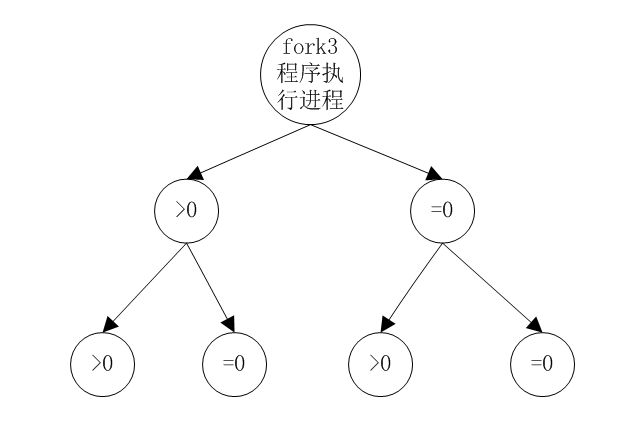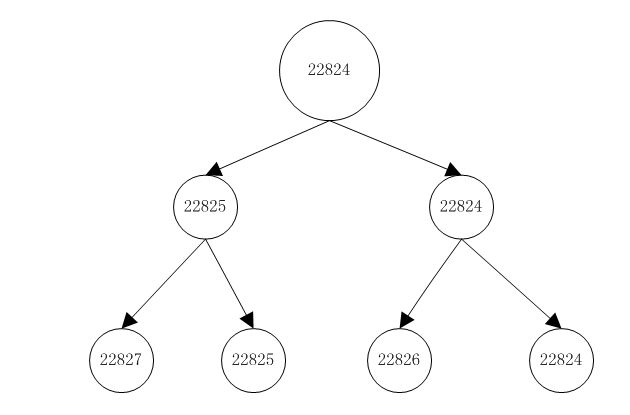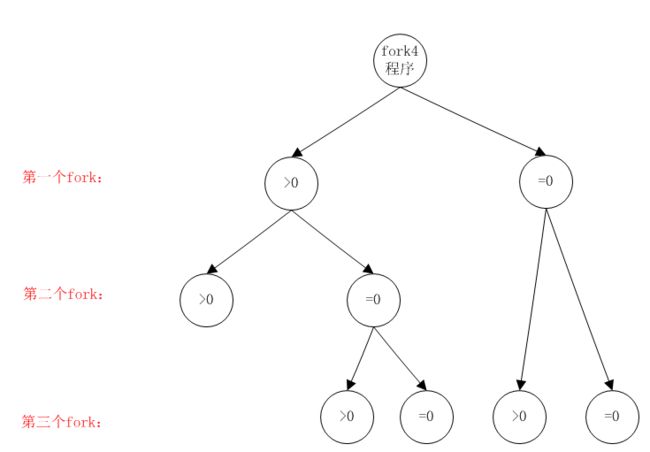- 如何在 Fork 的 GitHub 项目中保留自己的修改并同步上游更新?github_fork_update
iBaoxing
github
如何在Fork的GitHub项目中保留自己的修改并同步上游更新?在GitHub上Fork了一个项目后,你可能会对项目进行一些修改,同时原作者也在不断更新。如果想要在保留自己修改的基础上,同步原作者的最新更新,很多人会不知所措。本文将详细讲解如何在不丢失自己改动的情况下,将上游仓库的更新合并到自己的仓库中。问题描述假设你在GitHub上Fork了一个项目,并基于该项目做了一些修改,随后你发现原作者对
- 我的烦恼
余建梅
我的烦恼。女儿问我:“你给学生布置什么作文题目?”“《我的烦恼》。”“他们都这么大了,你觉得他们还有烦恼吗?”“有啊!每个人都会有自己烦恼。”“我不相信,大人是没有烦恼的,如果说一定有的话,你的烦恼和我写作业有关,而且是小烦恼。不像我,天天被你说,有这样的妈妈,烦恼是没完没了。”女儿愤愤不平。每个人都会有自己的烦恼,处在上有老下有小的年纪,烦恼多的数不完。想干好工作带好孩子,想孝顺父母又想经营好自
- 《Python数据分析实战终极指南》
xjt921122
python数据分析开发语言
对于分析师来说,大家在学习Python数据分析的路上,多多少少都遇到过很多大坑**,有关于技能和思维的**:Excel已经没办法处理现有的数据量了,应该学Python吗?找了一大堆Python和Pandas的资料来学习,为什么自己动手就懵了?跟着比赛类公开数据分析案例练了很久,为什么当自己面对数据需求还是只会数据处理而没有分析思路?学了对比、细分、聚类分析,也会用PEST、波特五力这类分析法,为啥
- 诡谲的一夜
乔三鳞
门缝里有一些眼睛,我再熟悉不过了,眼睛总和门有关。上次开门的时候,母亲的义眼骨碌碌地滚到我的脚边,顺着滚动的轨迹看过去,原来是父亲又打了母亲。父亲常这样殴打母亲,抓着她的头,往墙上,重重地砸。母亲的眼睛会掉下来,地上有灰,所以总要洗洗才能装回眼窝里。我想,装回去的时候会疼的——很疼,因为母亲总是流出血泪。所以,在我的认知里,门和眼睛的关系是紧密的,现在也一样,门缝里那些如葡萄般一串串的眼睛,摘一个
- 11月,你好
自由自在的白云
图片发自App今天是11月的第一天阳光明媚,秋日静好。给大家分享一个情绪管理的方法。也许你学习过,也许你还不曾了解,都没有关系,现在,我们一起来温习一下。就像孔老先生说的:学而时习之,温故而知新。种下对的种子,才会结出好的果实。种下情绪良好的种子,就可以收获良好的心态。“你瞧这些白云聚了又散,散了又聚,人生离合,亦复如斯。”世事如此,情绪的变化如山型曲线,一会来了,一会去了。还有那天课堂中老师讲,
- 如何培养兴趣
绽蕊向阳
今天读李笑来的书《与时间做朋友》,读到有关兴趣部分,深有感触。书中提到,好多人说对某事没有兴趣,实际上是没有能力把这件事做好,做这件事时的感受很不好,有挫败感,每个人对自己不擅长做不好的事情,都本能的容易逃避,所以就以为自己对这件事不感兴趣,他们真正感兴趣的是其他事情。可事实上,出现这种感觉应该仅仅是因为还没有开始做那件事情,也还没有在那件事情上遭受挫折而已。其实,很多人真的放弃原来做的事情,转去
- 辟谷日记 备谷6
玉衡_李俊晔
备谷6图片发自App日期:18.1.31(周三)起床:7:30放假的日子,5:45的闹钟并没有关掉,每天也差不多这个点就朦朦胧胧醒了,有时不是真的醒了,就允许继续睡。今天似乎真的没什么睡意了——看来身体自然会有“够了”那个点,更加笃定:交托这词就是完完全全交托给身体,全然交托给宇宙,不需要任何评判,放下各种担心,恐惧,要求,内疚……在床上做逆转,思绪静不下来……知道成长就是做自己的主人,可以“掌控
- ARMv8 Debug
__pop_
ARMv8ARM64架构linux运维
内容来自DEN0024A_v8_architecture_PG.pdf本质ARMv8Debug是什么历史在ARMv4开始被引入,并已发展成一系列广泛的调试(debug1)和跟踪(trace)功能ARMv6和ARMv7-a新增了自托管调试(debug2)和性能评测(trace-enhance)ARMv8处理器提供硬件功能侵入式:调试工具能够对核心活动提供显著级别的控制非侵入式:以非侵入性方式收集有关
- 逻辑思维的过程与力量
解晓萱
之前我对逻辑思维的了解停留在,讲话时有逻辑,辩论时条理清晰。今天看了《开讲了》里面关于大学生质疑易中天老师的视频,听到易中天老师的回答,忽然对逻辑思维有了稍微深刻的理解。图片发自App逻辑学对我们太重要了,不仅仅是学习备考,更重要的是生活和事业及交流的选择及过程。偏激的起点和性格有关,更和逻辑思维水平有关。视频里,易中天老师评价北大学生逻辑时讲到:“他的逻辑环节是没问题的,但是逻辑起点错了,所以他
- 买书
与美好同行
今天真是痛快,连收三个快递,十本书。周三时,薛老师讲课说让准备大字注音版的《左传》,因为《史记》的读书纵轴上开始串上《左传》这一横轴了。《史记》已经读到了《秦本纪》,里面有关晋文公部分,老师说结合《左传》里面的相关具体内容读更精彩更明白,于是大家纷纷移步淘宝或者拼多多,寻找大字注音版《左传》。两个网上都有,且都在搞活动,于是找好了果断下单。去年在群里和大家一块儿买《史记》时,已经同时买了中华书局三
- 【2022 CCF 非专业级别软件能力认证第一轮(CSP-J1)入门级 C++语言试题及解析】
汉子萌萌哒
CCFnoi算法数据结构c++
一、单项选择题(共15题,每题2分,共计30分;每题有且仅有一个正确选项)1.以下哪种功能没有涉及C++语言的面向对象特性支持:()。A.C++中调用printf函数B.C++中调用用户定义的类成员函数C.C++中构造一个class或structD.C++中构造来源于同一基类的多个派生类题目解析【解析】正确答案:AC++基础知识,面向对象和类有关,类又涉及父类、子类、继承、派生等关系,printf
- 2019-01-07
遇伱
这世上最不幸福的事情就是我等的人没有等我我关心的那个人没有关心我我想的那个人没有想我见不到的时候就会想你见到的时候就会高兴大概所有的喜欢都很相似
- 【日记】2023.10.31十月
冰瑗
不知不觉,十月走到了尾声,从灿烂的阳光走向了灿烂的落叶。以前我看日历,总会觉得一个月的时间很快就会过去,在日历上短短的四行数字,是呼吸间就能读完的几行,可是真正经历过后,才蓦然发觉,似乎太多事情的堆叠,让我觉得像是过了很久。十一回家的路途还历历在目,辗转在火车站里的凌晨,和到达沈阳站看到的破晓的霞光,在今夜都让我觉得恍若隔世。翻看之前记录的有关十月的日记,有很多都是心情的起伏,其实每一天还是平静悠
- 助力新能源汽车产业发展,2025第五届广州国际新能源汽车产业智能制造技术展览会将于11月在广州召开
ws201907
制造汽车
助力新能源汽车产业发展,2025第五届广州国际新能源汽车产业智能制造技术展览会将于11月在广州召开伴随着全球新一轮科技革命和产业变革,汽车与能源、半导体、物联网等领域有关技术加速融合,新能源汽车已成为全球汽车产业转型升级的主要方向。近年来,在相关政策的影响下,新能源汽车市场呈现出快速增长的态势,市场规模不断扩大。截至2020年,中国新能源汽车保有量已超过500万辆,成为全球最大的新能源汽车市场。随
- TC27x启动过程(2)-TC277
赞哥哥s
TC277学习笔记gnu单片机
接上文,继续学习TC277的启动过程。分析启动函数有关用的寄存器说明,参考文章TC27x寄存器学习目录TC27x寄存器学习start函数分析isync汇编指令(同步指令)dsync汇编指令(同步数据),1清除endinit2设置中断堆栈3启用对系统全局寄存器的写访问4初始化SDA基指针5关闭对系统全局寄存器的写访问6关闭看门狗,恢复Endinit位7初始化CSA8初始化ram,拷贝rom数据到ra
- 小学科学课堂管理规培有感
31c6a3d23d4e
今天进行了这学期的第一次新教师规培,又是干货满满的一次学习,两位有经验的老教师分享了自己很多年来有关科学教学的经验。苏老师的语言风趣幽默,通过他的课堂管理规则,懂得了语言的艺术。艳姐分享的培养小助手,对我的帮助很多,小组长,(做记录、整理材料、管理卫生)。既培养了学生,又减轻老师的工作量,还有评价表,学起来学起来!
- 这样共读一本书
eggplant
2021年10月6日星期三本期学校阳光管理轮训共读刘铁芳教授的《以教学打开生命——个体成人的教学哲学阐释》,这是继共读刘教授《什么是好的教育》之后的第二本书籍,这两本书籍都是有关教育的哲学书籍,应该说,《以教学打开生命——个体成人的教学哲学阐释》是《什么是好的教育》的延伸、丰富与升华,理论性更强,哲学意味更浓,对于一线教师来说,接触哲学类的书籍较少,在阅读上有些内容的理解有难度,但是,有难度才更值
- 新媒体运营小白,有哪些书籍可以推荐?
y耳朵
为了转行运营,我曾花了3个月的时间,看了不下百本书,可以说市面上大部分跟运营有关的书籍,我都看过了,因此关于书的推荐也有一些自己的小见解。看书不一定要多,但一定要****精,我根据豆瓣评分、推荐热度和自己的转行经历,挑出了13本值得运营小白看的书,收藏好这份书单,不需要你浪费时间去找书了。先看下统计好的书单:整理不易,看完记得点个赞哦!感谢你的支持。入门篇:1.《运营之光》(豆瓣评分:8.0)推荐
- Kubernetes Ingress 控制器(Nginx)安装与使用教程
农优影
KubernetesIngress控制器(Nginx)安装与使用教程kubernetes-ingressNGINXandNGINXPlusIngressControllersforKubernetes项目地址:https://gitcode.com/gh_mirrors/ku/kubernetes-ingress1.项目目录结构及介绍在nginxinc/kubernetes-ingress仓库中,
- 公道中学举行校园安全目标责任书签订仪式
公中盛传云
图片发自App为认真做好学校校园安全管理工作,切实将安全抓实抓细,真正落实到位,责任到人,形成齐抓共管的局面。公道中学在毓贤楼多功能教室举行了2018-2019学年校园安全目标责任书签订仪式。公道中学全体教职工近150人参加签订仪式。图片发自App会议开始,公道中学校长助理盛传云传达了《扬州市邗江区教育系统社会治安综合治理暨平安校园建设责任书》的精神及近期有关上级教育主管部门下发有关食品安全、交通
- 为啥大家都喜欢看《大叔》这类的电影,绝对不仅仅是因为爽
舜子的简单日记
其实这几天我看电影还是很多的,但都没有写,为啥没写?主要是时间问题,另外还是还和心境有关。最近的心思都放在支持学员身上了,没有太多时间去分析总结电影剧情。不过不写不代表心里没东西,就像昨天看完韩国电影《大叔》,接着在除了公众号之外的几个自媒体平台都发了同一篇文章,那就是关于《大叔》的类比电影比较。《大叔》也成为《孤胆特工》,是韩国帅哥元彬主演的一部黑色动作大片。电影中掺杂着《这个杀手不太冷》和《怒
- SQLIntegrityConstraintViolationException解决方案
lu520zxcv
java
java.sql.SQLIntegrityConstraintViolationException:Duplicateentry'2'forkey't_pay.PRIMARY'当项目中出现上述异常表示,唯一的键已存在,再次向数据库插入相同唯一键的数据,此时,我们只需要将唯一键字段换一个既可。
- 是我共情能力太差,还是这世间压根就没有感同身受?
五月儿要努力
老妈时不时的跟我说起他们妯娌之间的事情,还有老爸他们兄弟间的大事小事。每次老妈和我说起他们之间的一些事情的时候总是显得很气愤。尤其是说到和利益有关的东西的时候更是如此。而我除了做好一个听众我真的不知道如何去发表意见,这样也好让老妈知道我是有在认真听他讲。转念一想,我能说什么呢?我压根不知道事情的来龙去脉。我发表看法有什么意义呢?想想罢了。我还是喜欢做一个安静的听众。如果是你,你会如何处理呢?
- Github 2024-09-12 Go开源项目日报Top10
老孙正经胡说
githubgolang开源Github趋势分析开源项目PythonGolang
根据GithubTrendings的统计,今日(2024-09-12统计)共有10个项目上榜。根据开发语言中项目的数量,汇总情况如下:开发语言项目数量Go项目10C项目1Terraform:基础设施即代码的开源工具创建周期:3626天开发语言:Go协议类型:OtherStar数量:40393个Fork数量:9397次关注人数:40393人贡献人数:358人OpenIssues数量:1943个Git
- 推迟和拖延(实修第12次作业)
微光半糖
图片发自App拖延是很多人有的毛病,团长说拖延大多来自于以下五种原因:1、害怕失败,习得性无助。2、害怕成功,无价值。不敢超越的潜意识,不配得感,不相信自己可以获得更好的。3、叛逆、抗拒权威,转化为拖延。4、依恋和疏离关系,都会造成拖延习惯。5、完美主义者也容易拖延。分析自我,我的拖延原因占了好几个部分。这些习惯和原生家庭的教养有关。我的父母一辈子老实巴交,生怕得罪他人。他们从小就不鼓励我去尝试任
- Fork/Join框架与ForkJoinPool
浪白条
1.Fork/Join框架fork操作的作用是把一个大的问题划分成若干个较小的问题。在这个划分过程一般是递归进行的。直到可以直接进行计算。需要恰当地选取子问题的大小。太大的子问题不利于通过并行方式来提高性能,而太小的子问题则会带来较大的额外开销。每个子问题计算完成后,可以得到关于整个问题的部分解。join操作的作用是把这些分解手机组织起来,得到完整解。简单的说,ForkJoin其核心思想就是分治。
- 版权小议—《我的前半生》
董编辑的公版书世界
前几天,我们讲到过有关版权的问题,今天,再把这个主题向前引申一步。我们讲了无论中国还是国际版权体系中,作者都享有五十年的版权保护期。但是,如果作者不只一人呢?前面讲过的《傅雷家书》的著作权属于傅敏先生,傅敏现实去世五十年内享有本书版权保护,如果不止傅敏先生一人参与了家属的整理,又如何处理?那就是,待到某一作品最后一位去世的作者去世五十年后,该作品才进入公版期。那为什么我们这篇文章的题目,提到了溥仪
- 想你时你在天边,想你时你在眼前
西贝贾721
小王子说:“你知道吗,一个人忧伤难过的时候,就会很喜欢去看落日。”日落常让让人想到忧伤。如“夕阳无限好,只是近黄昏”,“夕阳西下,断肠人在天涯。”我落日般的忧伤就像惆怅的飞鸟;惆怅的飞鸟飞成我落日般的忧伤。对一个人的想念,就是时不时无意中想起与之有关的事,这就是爱的表现吧。
- 科普阅读两不误,这才是儿童科普阅读的正确打开方式
麦麦安
"孩子数学不好,根源在于语文没学好",这一观点已经被越来越多的老师和家长接受。虽然阅读理解力看上去只和语文有关,事实上,它是所有学科的根基。比如一道数学应用题,只有正确地看懂了各种条件,才能把答案快速地解出来。在美国的小学教育体系中,很重要的一项任务是帮助儿童进行大量阅读,从而培养出理解及思考的能力。这种说法虽然正确,但很多孩子也会存在这样一个问题:绘本故事类的阅读量不小,看小说听故事几乎可以独立
- 每日几句:十月的最后一天(2021年10月31日)
辛苦快乐
这是一个欢快的十月,我们共同度过了阳光明媚的黄金周。这又是一个低沉的十月,我们遭遇了德尔塔的突然袭击。十月将过,病毒的幽灵尚未散去,城市那么安静,人们大都宅在家里,街上的商铺闭门歇业,微信圈里全是有关疫情的信息,想吃的牛肉面暂时无法吃到。就这样,与时间为伴,与生活为伴,也与时间赛跑,与病毒较量。期待着,一切归于常态,迎来阳光明媚如初。
- xml解析
小猪猪08
xml
1、DOM解析的步奏
准备工作:
1.创建DocumentBuilderFactory的对象
2.创建DocumentBuilder对象
3.通过DocumentBuilder对象的parse(String fileName)方法解析xml文件
4.通过Document的getElem
- 每个开发人员都需要了解的一个SQL技巧
brotherlamp
linuxlinux视频linux教程linux自学linux资料
对于数据过滤而言CHECK约束已经算是相当不错了。然而它仍存在一些缺陷,比如说它们是应用到表上面的,但有的时候你可能希望指定一条约束,而它只在特定条件下才生效。
使用SQL标准的WITH CHECK OPTION子句就能完成这点,至少Oracle和SQL Server都实现了这个功能。下面是实现方式:
CREATE TABLE books (
id &
- Quartz——CronTrigger触发器
eksliang
quartzCronTrigger
转载请出自出处:http://eksliang.iteye.com/blog/2208295 一.概述
CronTrigger 能够提供比 SimpleTrigger 更有具体实际意义的调度方案,调度规则基于 Cron 表达式,CronTrigger 支持日历相关的重复时间间隔(比如每月第一个周一执行),而不是简单的周期时间间隔。 二.Cron表达式介绍 1)Cron表达式规则表
Quartz
- Informatica基础
18289753290
InformaticaMonitormanagerworkflowDesigner
1.
1)PowerCenter Designer:设计开发环境,定义源及目标数据结构;设计转换规则,生成ETL映射。
2)Workflow Manager:合理地实现复杂的ETL工作流,基于时间,事件的作业调度
3)Workflow Monitor:监控Workflow和Session运行情况,生成日志和报告
4)Repository Manager:
- linux下为程序创建启动和关闭的的sh文件,scrapyd为例
酷的飞上天空
scrapy
对于一些未提供service管理的程序 每次启动和关闭都要加上全部路径,想到可以做一个简单的启动和关闭控制的文件
下面以scrapy启动server为例,文件名为run.sh:
#端口号,根据此端口号确定PID
PORT=6800
#启动命令所在目录
HOME='/home/jmscra/scrapy/'
#查询出监听了PORT端口
- 人--自私与无私
永夜-极光
今天上毛概课,老师提出一个问题--人是自私的还是无私的,根源是什么?
从客观的角度来看,人有自私的行为,也有无私的
- Ubuntu安装NS-3 环境脚本
随便小屋
ubuntu
将附件下载下来之后解压,将解压后的文件ns3environment.sh复制到下载目录下(其实放在哪里都可以,就是为了和我下面的命令相统一)。输入命令:
sudo ./ns3environment.sh >>result
这样系统就自动安装ns3的环境,运行的结果在result文件中,如果提示
com
- 创业的简单感受
aijuans
创业的简单感受
2009年11月9日我进入a公司实习,2012年4月26日,我离开a公司,开始自己的创业之旅。
今天是2012年5月30日,我忽然很想谈谈自己创业一个月的感受。
当初离开边锋时,我就对自己说:“自己选择的路,就是跪着也要把他走完”,我也做好了心理准备,准备迎接一次次的困难。我这次走出来,不管成败
- 如何经营自己的独立人脉
aoyouzi
如何经营自己的独立人脉
独立人脉不是父母、亲戚的人脉,而是自己主动投入构造的人脉圈。“放长线,钓大鱼”,先行投入才能产生后续产出。 现在几乎做所有的事情都需要人脉。以银行柜员为例,需要拉储户,而其本质就是社会人脉,就是社交!很多人都说,人脉我不行,因为我爸不行、我妈不行、我姨不行、我舅不行……我谁谁谁都不行,怎么能建立人脉?我这里说的人脉,是你的独立人脉。 以一个普通的银行柜员
- JSP基础
百合不是茶
jsp注释隐式对象
1,JSP语句的声明
<%! 声明 %> 声明:这个就是提供java代码声明变量、方法等的场所。
表达式 <%= 表达式 %> 这个相当于赋值,可以在页面上显示表达式的结果,
程序代码段/小型指令 <% 程序代码片段 %>
2,JSP的注释
<!-- -->
- web.xml之session-config、mime-mapping
bijian1013
javaweb.xmlservletsession-configmime-mapping
session-config
1.定义:
<session-config>
<session-timeout>20</session-timeout>
</session-config>
2.作用:用于定义整个WEB站点session的有效期限,单位是分钟。
mime-mapping
1.定义:
<mime-m
- 互联网开放平台(1)
Bill_chen
互联网qq新浪微博百度腾讯
现在各互联网公司都推出了自己的开放平台供用户创造自己的应用,互联网的开放技术欣欣向荣,自己总结如下:
1.淘宝开放平台(TOP)
网址:http://open.taobao.com/
依赖淘宝强大的电子商务数据,将淘宝内部业务数据作为API开放出去,同时将外部ISV的应用引入进来。
目前TOP的三条主线:
TOP访问网站:open.taobao.com
ISV后台:my.open.ta
- 【MongoDB学习笔记九】MongoDB索引
bit1129
mongodb
索引
可以在任意列上建立索引
索引的构造和使用与传统关系型数据库几乎一样,适用于Oracle的索引优化技巧也适用于Mongodb
使用索引可以加快查询,但同时会降低修改,插入等的性能
内嵌文档照样可以建立使用索引
测试数据
var p1 = {
"name":"Jack",
"age&q
- JDBC常用API之外的总结
白糖_
jdbc
做JAVA的人玩JDBC肯定已经很熟练了,像DriverManager、Connection、ResultSet、Statement这些基本类大家肯定很常用啦,我不赘述那些诸如注册JDBC驱动、创建连接、获取数据集的API了,在这我介绍一些写框架时常用的API,大家共同学习吧。
ResultSetMetaData获取ResultSet对象的元数据信息
- apache VelocityEngine使用记录
bozch
VelocityEngine
VelocityEngine是一个模板引擎,能够基于模板生成指定的文件代码。
使用方法如下:
VelocityEngine engine = new VelocityEngine();// 定义模板引擎
Properties properties = new Properties();// 模板引擎属
- 编程之美-快速找出故障机器
bylijinnan
编程之美
package beautyOfCoding;
import java.util.Arrays;
public class TheLostID {
/*编程之美
假设一个机器仅存储一个标号为ID的记录,假设机器总量在10亿以下且ID是小于10亿的整数,假设每份数据保存两个备份,这样就有两个机器存储了同样的数据。
1.假设在某个时间得到一个数据文件ID的列表,是
- 关于Java中redirect与forward的区别
chenbowen00
javaservlet
在Servlet中两种实现:
forward方式:request.getRequestDispatcher(“/somePage.jsp”).forward(request, response);
redirect方式:response.sendRedirect(“/somePage.jsp”);
forward是服务器内部重定向,程序收到请求后重新定向到另一个程序,客户机并不知
- [信号与系统]人体最关键的两个信号节点
comsci
系统
如果把人体看做是一个带生物磁场的导体,那么这个导体有两个很重要的节点,第一个在头部,中医的名称叫做 百汇穴, 另外一个节点在腰部,中医的名称叫做 命门
如果要保护自己的脑部磁场不受到外界有害信号的攻击,最简单的
- oracle 存储过程执行权限
daizj
oracle存储过程权限执行者调用者
在数据库系统中存储过程是必不可少的利器,存储过程是预先编译好的为实现一个复杂功能的一段Sql语句集合。它的优点我就不多说了,说一下我碰到的问题吧。我在项目开发的过程中需要用存储过程来实现一个功能,其中涉及到判断一张表是否已经建立,没有建立就由存储过程来建立这张表。
CREATE OR REPLACE PROCEDURE TestProc
IS
fla
- 为mysql数据库建立索引
dengkane
mysql性能索引
前些时候,一位颇高级的程序员居然问我什么叫做索引,令我感到十分的惊奇,我想这绝不会是沧海一粟,因为有成千上万的开发者(可能大部分是使用MySQL的)都没有受过有关数据库的正规培训,尽管他们都为客户做过一些开发,但却对如何为数据库建立适当的索引所知较少,因此我起了写一篇相关文章的念头。 最普通的情况,是为出现在where子句的字段建一个索引。为方便讲述,我们先建立一个如下的表。
- 学习C语言常见误区 如何看懂一个程序 如何掌握一个程序以及几个小题目示例
dcj3sjt126com
c算法
如果看懂一个程序,分三步
1、流程
2、每个语句的功能
3、试数
如何学习一些小算法的程序
尝试自己去编程解决它,大部分人都自己无法解决
如果解决不了就看答案
关键是把答案看懂,这个是要花很大的精力,也是我们学习的重点
看懂之后尝试自己去修改程序,并且知道修改之后程序的不同输出结果的含义
照着答案去敲
调试错误
- centos6.3安装php5.4报错
dcj3sjt126com
centos6
报错内容如下:
Resolving Dependencies
--> Running transaction check
---> Package php54w.x86_64 0:5.4.38-1.w6 will be installed
--> Processing Dependency: php54w-common(x86-64) = 5.4.38-1.w6 for
- JSONP请求
flyer0126
jsonp
使用jsonp不能发起POST请求。
It is not possible to make a JSONP POST request.
JSONP works by creating a <script> tag that executes Javascript from a different domain; it is not pos
- Spring Security(03)——核心类简介
234390216
Authentication
核心类简介
目录
1.1 Authentication
1.2 SecurityContextHolder
1.3 AuthenticationManager和AuthenticationProvider
1.3.1 &nb
- 在CentOS上部署JAVA服务
java--hhf
javajdkcentosJava服务
本文将介绍如何在CentOS上运行Java Web服务,其中将包括如何搭建JAVA运行环境、如何开启端口号、如何使得服务在命令执行窗口关闭后依旧运行
第一步:卸载旧Linux自带的JDK
①查看本机JDK版本
java -version
结果如下
java version "1.6.0"
- oracle、sqlserver、mysql常用函数对比[to_char、to_number、to_date]
ldzyz007
oraclemysqlSQL Server
oracle &n
- 记Protocol Oriented Programming in Swift of WWDC 2015
ningandjin
protocolWWDC 2015Swift2.0
其实最先朋友让我就这个题目写篇文章的时候,我是拒绝的,因为觉得苹果就是在炒冷饭, 把已经流行了数十年的OOP中的“面向接口编程”还拿来讲,看完整个Session之后呢,虽然还是觉得在炒冷饭,但是毕竟还是加了蛋的,有些东西还是值得说说的。
通常谈到面向接口编程,其主要作用是把系统��设计和具体实现分离开,让系统的每个部分都可以在不影响别的部分的情况下,改变自身的具体实现。接口的设计就反映了系统
- 搭建 CentOS 6 服务器(15) - Keepalived、HAProxy、LVS
rensanning
keepalived
(一)Keepalived
(1)安装
# cd /usr/local/src
# wget http://www.keepalived.org/software/keepalived-1.2.15.tar.gz
# tar zxvf keepalived-1.2.15.tar.gz
# cd keepalived-1.2.15
# ./configure
# make &a
- ORACLE数据库SCN和时间的互相转换
tomcat_oracle
oraclesql
SCN(System Change Number 简称 SCN)是当Oracle数据库更新后,由DBMS自动维护去累积递增的一个数字,可以理解成ORACLE数据库的时间戳,从ORACLE 10G开始,提供了函数可以实现SCN和时间进行相互转换;
用途:在进行数据库的还原和利用数据库的闪回功能时,进行SCN和时间的转换就变的非常必要了;
操作方法: 1、通过dbms_f
- Spring MVC 方法注解拦截器
xp9802
spring mvc
应用场景,在方法级别对本次调用进行鉴权,如api接口中有个用户唯一标示accessToken,对于有accessToken的每次请求可以在方法加一个拦截器,获得本次请求的用户,存放到request或者session域。
python中,之前在python flask中可以使用装饰器来对方法进行预处理,进行权限处理
先看一个实例,使用@access_required拦截:
?


